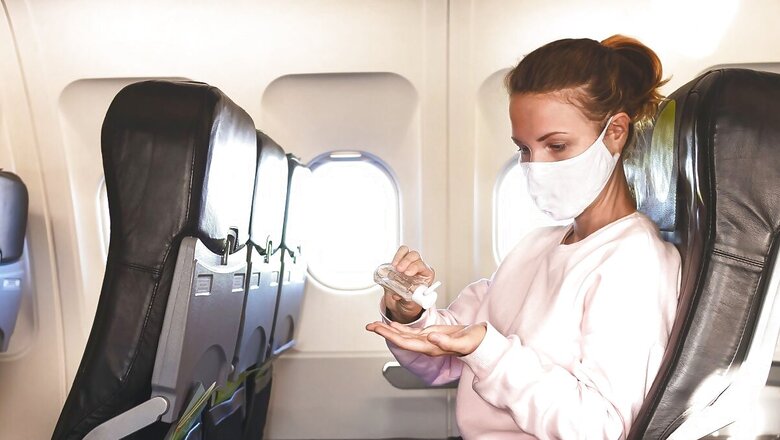
472
views
views
Here are some practical tips to maintain personal hygiene during flights
It’s crucial to practice good hygiene habits while traveling. It can help in preventing illness and minimize the spread of germs. Dr. Subhashree Samantaray, Infectious Diseases Specialist, Manipal Hospitals, Bhubaneswar shares some practical tips to maintain personal hygiene during flights:
Hydration is Key
- Cabin air is typically dry with humidity levels often below 20%, which can lead to dehydration.
- Drink water regularly throughout the flight. Steer clear of alcohol and caffeine in excess as these will further dehydrate you.
Hand Hygiene
- Airplanes are shared spaces with many high-touch surfaces, making them potential hotspots for germs.
- Wash your hands frequently with soap and water, and use alcohol-based hand sanitizer (at least 60% alcohol) when soap isn’t available. To lower the risk of infection, avoid touching your face, especially the areas around your mouth, nose, and eyes. Oral Hygiene
- Dry mouth can be a breeding ground for bacteria, leading to bad breath and an increased risk of oral infections.
- Rinse your mouth with water after meals. Chewing sugar-free gum can stimulate saliva production, helping to keep your mouth moist.
Respiratory Hygiene
- Respiratory infections, including colds and flu, are easily spread in close quarters like an airplane cabin.
- Wear a mask, especially if you or others around you are showing symptoms of illness. To stop the spread of germs, cough or sneeze into your elbow rather than your hands.
Skin Care
- Dry cabin air can lead to skin dehydration, irritation, and even exacerbation of skin conditions like eczema.
- Apply a fragrance-free, hypoallergenic moisturizer before and during the flight. Lip balm is also essential to prevent chapped lips.
Infection Control
- In a closed environment like an airplane, germs can spread easily, leading to various infections.
- Disinfect high-touch surfaces, such as tray tables, armrests, and seatbelts, with disinfectant wipes. Carrying your own blanket and pillow can further reduce exposure to germs.
Gastrointestinal Comfort
- Eat light meals and avoid gas-producing foods before and during the flight. Consider bringing over-the-counter remedies for indigestion or gas if you’re prone to these issues.
- Moving around time-to-time during a long flight helps with both circulation and reduce the feeling of discomfort.
Sleep Hygiene
- Poor sleep quality during long flights can weaken the immune system, making you more susceptible to infections.
- Bring a sleep mask and earplugs to help create a restful environment. Try to maintain a sleep routine if you’re on a long flight.
Post-Flight Hygiene
- The flight environment can leave you feeling unclean and increase the risk of skin irritation and infections.
- Shower as soon as possible after your flight to cleanse your skin and refresh your body. Pay attention to areas prone to irritation, such as underarms and feet.
Travel vaccines
- Before travelling abroad, be up to date with routine vaccinations like MMR, DTaP, Polio and influenza.
- Consult with your doctor or visit a designated ‘Adult Immunization clinic’ for destination-specific vaccine advices like COVID-19, yellow fever, Japanese encephalitis and meningococcal vaccines including malaria chemoprophylaxis.
- Keep a copy of your vaccination records, as you may have to produce it at the time of immigration at international airports.




















Comments
0 comment